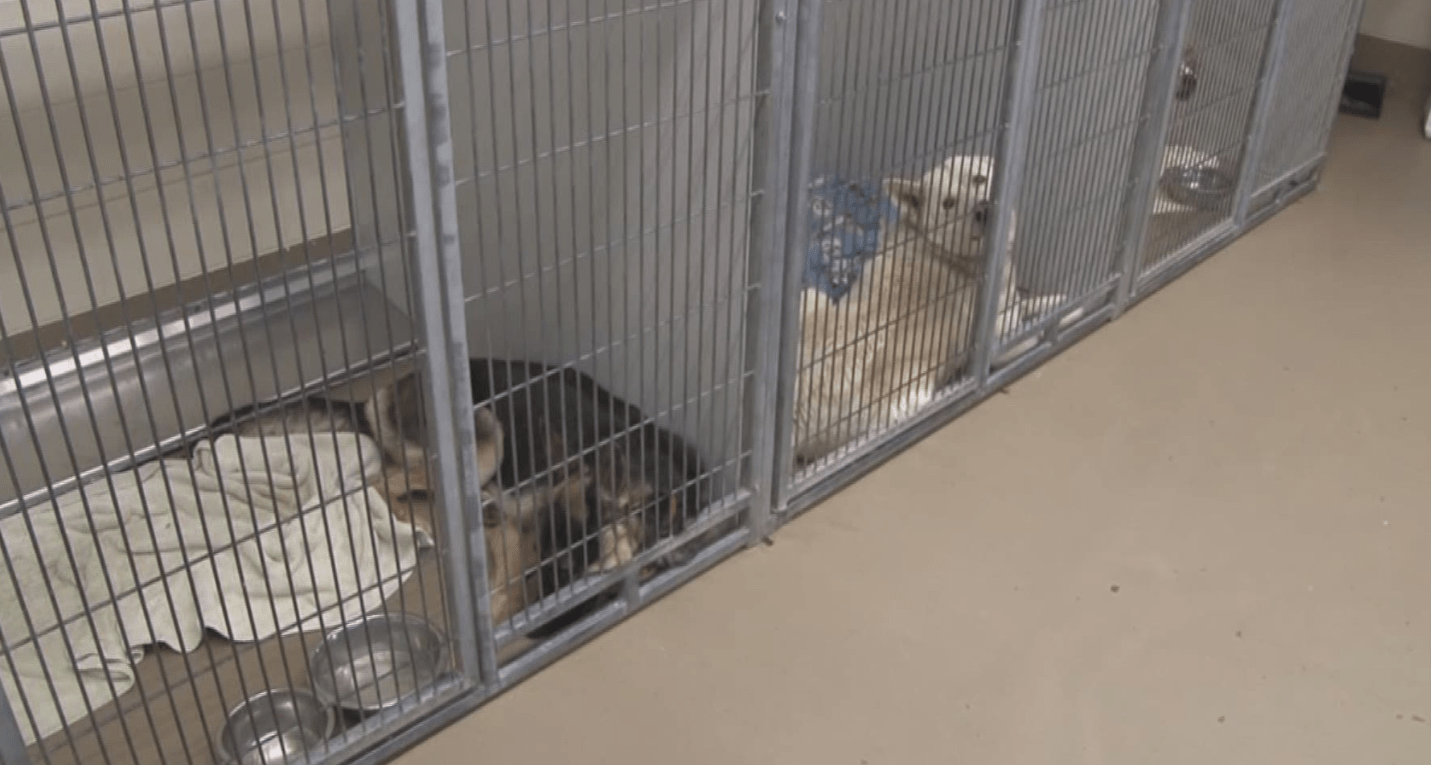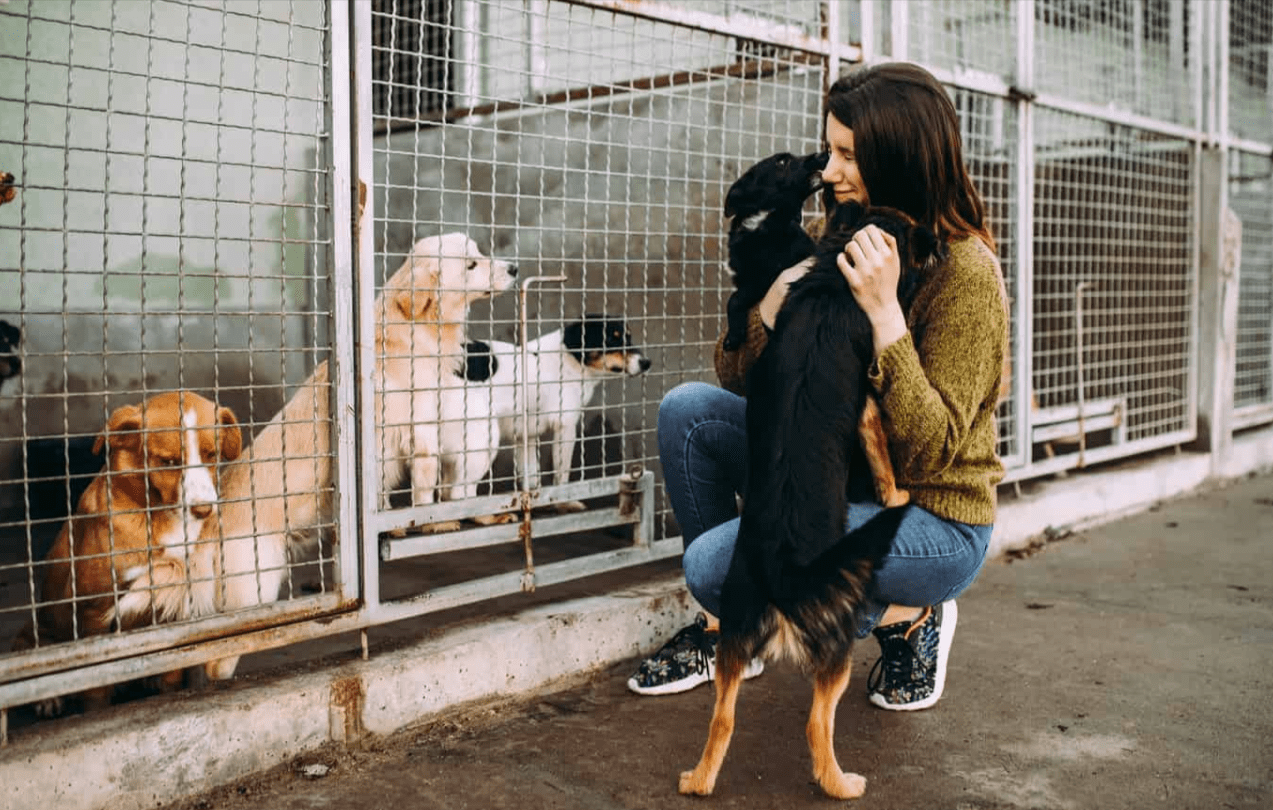If you’re considering adopting an adult dog, these tips will be quite useful.
Adopting an adult dog is a wonderful way to offer them a fresh start. While puppies are adorable and lively, they require a lot of care and patience as they grow. You’ll need to navigate the chewing phase, which can be lengthy, and their boundless energy means they often need plenty of playtime. Raising a puppy can be demanding!
The advantage of choosing an adult dog is that you have a clearer understanding of what to expect. An adult dog is fully grown, so there are no surprises regarding their size or physical traits. Their personality is already established, and they may have some prior training, making the transition smoother.
Adopting an adult dog offers many advantages, but there are several factors you should consider before proceeding.
Considerations Before Adopting an Adult Dog
1. The Breed
Some dog breeds are better suited for first-time owners than others. If you’re new to dog ownership, it’s best to start with breeds known for their obedience. Golden Retrievers, Labrador Retrievers, King Charles Spaniels, and Poodles are all great options for novice pet parents.
It’s wise to avoid breeds that are notoriously difficult to train, such as Siberian Huskies, Basenjis, and Afghan Hounds. These breeds are often found in shelters due to their challenging training needs.
Adopting an adult dog can present challenges, particularly if the dog has had difficult experiences with previous owners. It may require significant time, patience, and effort to help a frightened or reserved dog feel comfortable. Choosing a breed known for being more submissive can help simplify this process.
Before adopting a dog, it’s important to familiarize yourself with the breed’s specific traits. Research the breed’s history, grooming needs, exercise requirements, and social behavior. Understanding these aspects will help you make an informed decision and ensure that you’re prepared for the responsibilities that come with adopting that particular breed.
2. Health
While a dog in poor health might not be the ideal choice for everyone, we believe every dog deserves a chance. For first-time dog owners, selecting a dog that is in good health can make the experience more manageable and rewarding.
Even when considering adult dogs, you can choose from ages as young as 1 or 2 years up to 18 years in some instances. Generally, dogs reach full maturity between 1 to 2 years and become seniors around 7 years old. If you select a younger adult dog, be prepared for a pet with plenty of energy.
3. Age
Selecting an older dog might mean adopting a calmer companion.
It’s important to evaluate how much time you can dedicate to your dog. Consider whether you can provide daily walks or if you’ll be away from home for long periods due to work. Ensure you can meet all of your dog’s needs.
How to adopt an adult dog ?
Many people find their new canine companions through shelters, reputable websites, social media groups focused on rehoming dogs, or even from friends and family.
Be sure to ask all the essential questions, such as:
Here are some important questions to consider:
- What is the adoption fee, if any?
- What items does the dog come with, such as a leash, collar, or kennel?
- What is the dog’s current health status?
- What is the dog’s temperament like?
- If the dog doesn’t work out, what is the procedure for returning it?
- Is the dog current on all its vaccinations?
Ensure all your questions are addressed before finalizing the adoption. The shelter or individual you’re adopting from should provide clear answers to ensure you feel confident about your decision.
Next, get your home ready for your new furry friend.
Prepare by acquiring essentials such as a dog bed and a crate for training. Make sure you have water and food bowls, a collar and leash, as well as poop bags, wipes, and some basic dog clothing. Additionally, stock up on training materials, treats, and food to make the transition smooth.
When it comes to food and treats, it’s important to recognize that adult dogs and puppies have different nutritional needs. Puppies need nutrient-dense food with higher calorie content to support their growth, while adult dogs require a balanced diet with fewer calories. It’s essential to choose dog food that meets these specific dietary requirements. A veterinarian can provide guidance on the best feeding program and offer additional advice tailored to your dog’s needs.
Dog kibble is available with specialized nutritional profiles tailored to different life stages and breeds. The important thing is to select a food that meets your dog’s specific needs.
Addressing Potential Issues in Dog Adoption
Adopting a pet always comes with its own set of challenges. The difficulties you encounter when adopting an adult dog can differ significantly from those associated with bringing home a puppy.
1. Behavior
Puppies are highly receptive to new experiences, while many adult dogs have more entrenched habits. Training an adult dog can be more challenging as it often involves modifying existing behaviors rather than starting from scratch.
The dog’s previous experiences significantly influence its behavior. You might encounter a dog that is distrustful, aggressive out of fear, or unusually shy and hesitant. Conversely, you might find a dog that is friendly, confident, and eager to please.
Be prepared for potential challenges. Many rescue dogs benefit from professional training to address behavioral issues, especially for those new to dog ownership.
2. Training
Training is essential for all dogs as it helps set house rules and teaches them acceptable behaviors.
Socialization plays a crucial role in developing a well-adjusted dog. While it’s always possible to socialize an older dog, doing so in a controlled environment, such as a dog training class, is often more effective. Some dogs from shelters may have had limited interaction with other dogs and may exhibit aggression. In these cases, a professional trainer can intervene if issues like biting or fights arise.
3. Bonding
Building a bond with your dog involves spending quality time together and engaging in daily activities. Simple actions, like brushing your dog’s coat daily, can foster a strong connection.
Activities such as playtime, walks, petting, maintaining eye contact, and talking to your dog will enhance your relationship. For dogs adopted from shelters, this process may take a bit longer.
Respect your dog’s need for space. If they show signs of discomfort, such as tucking their tail or flattening their ears when you try to pet them, give them a break and try again later.
Avoid forcing interactions and allow your dog the time and space they need to feel comfortable and open up.
Benefits of Choosing an Adult Dog for Adoption
Adopting an adult dog might seem daunting, but it offers several clear benefits.
One significant advantage is that potty training is often much simpler, as many older dogs are already housebroken. Those who have raised a puppy from the start will attest that potty training is one of the most challenging aspects of dog ownership.
Additionally, adult dogs are likely to have received some form of training, which can make learning new commands and behaviors easier. They are also generally more open to adopting new training techniques.
In straightforward terms, an older dog tends to be much easier to manage due to its calmer demeanor compared to a puppy. You won’t need to handle daily bursts of energy or clean up after an overactive pup.
Moreover, an adult dog is likely past the chewing phase. While boredom and separation anxiety can still lead to destructive behavior, excessive chewing is generally less of a concern.
Additionally, an adult dog is likely to be familiar with walks and may already be leash-trained. This means it’s less likely to pull, lunge, or chew on the leash.
Adopting an adult dog eliminates the uncertainty regarding size. Many puppy owners are often surprised by how large their pets grow, especially with mixed breed dogs.
Additionally, you can still teach an older dog new tricks, so don’t be concerned about the training aspect.
Where to Search for a New Dog?
Regardless of your location, there is likely an animal shelter within reach. Websites like Kijiji, Petfinder, Facebook, SPCA sites, and various non-profit organizations provide listings of dogs of all ages in need of a forever home.
It’s disheartening that so many dogs are in need of loving homes, and it’s especially unfortunate that the majority of these dogs are adults, as many people prefer to adopt puppies.
A reputable shelter or individual will not place their dogs with just anyone. While it’s important for you to ask questions, a reliable organization will also inquire extensively to ensure that the dog is going to a home that can meet its needs.
We recommend conducting a thorough search and background check on the organization or individual you are considering adopting from to ensure a safe and responsible adoption process.
Additional Tips for a Successful Adoption
1. Keep an Open Mind
Even if a dog has spent a significant amount of time in a shelter, it can still be a wonderful pet. Many people focus on adopting puppies and overlook adult dogs, which can lead to longer stays for older dogs in shelters.
A dog that has been in the shelter for an extended period might require some extra training to adjust to a new home. It might also need to be the sole pet in the household or have specific medical conditions that need addressing before it can find a new home.
2. Examine How the Dog Reacts to New Environments
Dogs can often feel apprehensive while in the kennels. To better understand their true nature, take the dog to a different location, such as a yard away from the shelter, where you can interact and observe their behavior more clearly. Alternatively, consider fostering the dog first; this allows you to spend time with them in a home environment and get to know their personality before making a commitment. If you decide to adopt, you’ll have a clearer sense of the dog’s character and needs.
3. Have Patience
An adult dog will require time to adjust to its new surroundings. It’s essential to provide a secure and safe environment for them. Initially, the dog might feel insecure, but they will quickly become accustomed to their new home once they feel safe.
If you have any concerns or need advice, don’t hesitate to contact the shelter staff. They can offer guidance and training tips to help you and your new pet start off on the right foot.
4. Utilizing Shelter Staff Expertise to Match with the Right Dog
The shelter staff can provide valuable insights into the personalities of the dogs they care for. Many shelters have matching programs to help you find a dog that aligns with your lifestyle. If staff members aren’t available, review the information cards at each kennel, which detail each dog’s personality traits. Additionally, ask about each dog’s specific needs and activity levels to ensure they fit well with your daily routine. Keep in mind that some breeds are more energetic than others.
5. Consider the Costs
The cost of adopting an adult dog can vary, and there are often great deals available.
Before finalizing your adoption, ensure the dog’s vaccinations are current and that it has received appropriate worming and flea treatments. Additionally, ask for the dog’s recent veterinary exam records if available. Many shelters also microchip their dogs, which can help in recovering them if they get lost or stolen.
Beyond the initial adoption fee, you should budget for ongoing expenses such as food, regular vaccinations, and annual veterinary check-ups. Veterinary care can be costly, so it’s essential to assess your ability to manage these expenses before adopting a dog.
Final words
When adopting an adult dog, it’s important to grasp the fundamentals.
Once you bring your new dog home, you’ll have the opportunity to build a bond and become more familiar with each other. If the dog seems shy initially, be patient; you will grow accustomed to each other over time. Make sure to review the breed characteristics before beginning the adoption process to help ensure you choose a dog that’s a good match for you.


